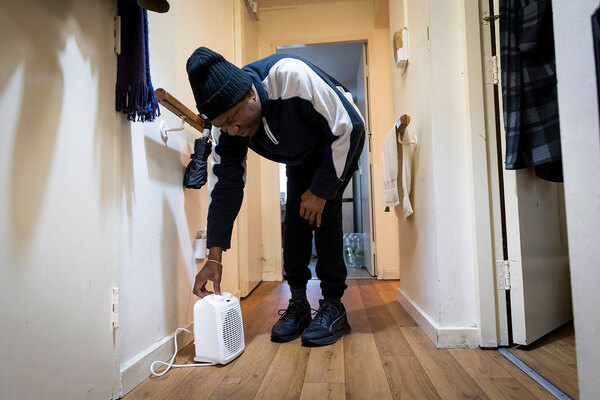You are viewing 1 of your 1 free articles
Government U-turns on 18-21s housing benefit cut
The government has U-turned on a controversial policy to scrap housing benefit for 18 to 21-year-olds under Universal Credit.
In a written statement to parliament Esther McVey, work and pensions secretary, announced the government would “amend regulations so that all 18 to 21-year-olds will be entitled to claim support for housing costs in Universal Credit”.
She added: “Currently, 18 to 21-year-olds who make a new claim to Universal Credit in full-service areas need to meet certain requirements to receive housing support. The change I am announcing today means that young people on benefits will be assured that if they secure a tenancy, they will have support towards their housing costs in the normal way.”
She said the decision “ensures that there are no unintended barriers to young people accessing housing on the basis of their age alone and getting into work, and is in line with the government’s launch of the Homelessness Reduction Act and our commitment to eradicating rough sleeping by 2027.”
The policy came in for criticism from homelessness charities and housing organisations such as Crisis, the Chartered Institute of Housing (CIH) and Centrepoint, which said it would not deliver the savings promised to the taxpayer and would “heap years of stress on already vulnerable young people”.
In January government statistics revealed that only 90 out of 2,090 18 to 21-year-old claimants had been hit by the policy because of a raft of exemptions that were published alongside the legislation.
Last year Inside Housing exclusively obtained a government impact assessment before the policy was introduced that revealed the government expected the policy to affect 11,000 18 to 21-year- olds by 2020/21.
David Pipe, policy and practice officer at the CIH, said: “We have consistently called for the restrictions on 18 to 21-year-olds to be dropped and we are pleased to see the government has finally removed a policy which its own statistics showed was based on faulty logic.
“The vast majority of young people who apply for help paying their rent do so because they need it, not simply because they can and they should never have been disadvantaged in this way.”
Ms McVey also said 18 to 21-year-olds will have a Youth Obligation, which will be an “intensive package of labour market support for 18 to 21-year-olds looking to get into work”.
Seyi Obakin, chief executive of Centrepoint, said: “The secretary of state’s decision is recognition of a policy that risked leaving vulnerable young people with nowhere to live.
“It was obvious from the first time the policy was floated in 2013 that at best it would be unworkable, and at worst it could actually increase homelessness and reduce the willingness of landlords to rent to all young people.
“While the system of exemptions which Centrepoint and others fought for have smoothed the rougher edges of the policy, today’s welcome announcement will put the minds of young people and their prospective landlords at ease.”
David Orr, chief executive at the National Housing Federation, said: “It’s very good news the government are restoring housing benefit to 18-21 year olds.
“This benefit cut has been creating great confusion over whether young people were eligible for these vital funds. Housing associations have told us that as a result they have seen more young, vulnerable people sleeping rough, or forced to depend on unscrupulous private landlords and dangerous accommodation. This was a policy that made no sense and today’s decision is a positive sign they are listening on welfare reform.”












